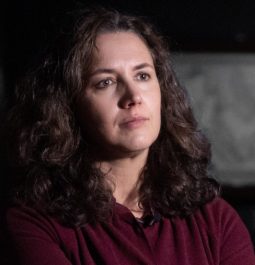Presentation
The Masters in Museology (MM) has as its fundamental goals to train future museum professionals (conservators) in all areas covered by museum practices: inventory, conservation, management, communication, research and exhibition.
The course is both theoretical and practical in nature and is developed in permanent articulation with a wide range of museums, including not only national museums but also local museums and museums with specialized collections. This confers upon the programme a solid inter and multidisciplinary character involving the scientific areas of History, Archaeology, Anthropology and Communication Sciences.
Students have the opportunity to make early contact with the main issues in museums and can take part in various research projects underway at the Art History Institute (IHA), benefiting from effective partnerships with all the museums and palaces under Direção Geral do Património Cultural (Directorate-General for Cultural Heritage)‘s jurisdiction and with Calouste Gulbenkian Foundation.
Many of MM’s alumni are now recognised professionals, working in museums, palaces and other bodies or micro-enterprises involved with heritage-related matters. A significant number of former students from the programme are now PhD students, mostly with FCT (Fundação para a Ciência e a Tecnologia - Foundation for Science and Technology) grants and are currently participating in the work of the Museum Studies Research Group of the Art History Institute.
Objectives
1) To acquire a solid training in the specific knowledge and competences of Museology, in all areas which comprise the functions of a museum, namely: documentation, cataloguing, exhibition, management, education and communication, articulating the research dimension with the technical and professional dimension;
2) To acquire a sound base and the capacity for reflection in the field of History and Theory of Museums, with a focus on collectionism, on the diversity of museum typologies and on thinking the role of museums in the dynamics of contemporary culture, enabling the elaboration of original research project and professional application in the specialty;
3) To acquire technical and practical skills in the context of permanent and in-depth contact with different museums, through study visits and practical work;
4) To acquire knowledge and academic skills appropriate to the performance of functions inherent to the job of museum curators, as well in various cultural enterprises, in the fields of museology, heritage and cultural tourism.
Curricular structure
Duration: 2 years / 4 semesters Total Credits: 120 ECTS (60 in curricular units + 60 in the non-taught component)
Modalities of non-taught component: Dissertation, Project Work or Practical Work Experience with Report
Students complete 50 credits in all the taught units offered. Students also complete 10 credits in a free-choice regime (in post-graduate level curricular units of NOVA FCSH, of NOVA or of other national or foreign higher education institutions, by means of a protocol). In the 3rd semester, students must attend a seminar to accompany the non-taught component (5 ECTS).
The Master’s degree corresponds to Level 7 of the NQF and EQF - National Qualifications Framework/European Qualifications Framework.
Coordination
Faculty staff
- Joana Sousa Monteiro
- João Almeida Filipe
- Helena Barranha
- Susana Gomes da Silva

